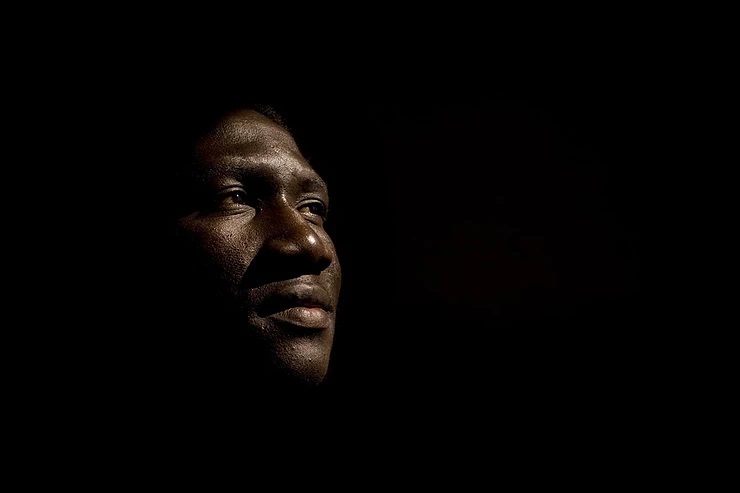
If I were to say to you: “you can’t lead another until you lead yourself,” most of you would readily nod your heads in agreement. We all appreciate the importance of self-leadership as we have seen leaders who are disastrous because they are unable to manage their egos, tempers, insecurities and/or many other aspects of their personality. If we look in the mirror, we can also see when the absence of self-leadership blocks us from delivering effective leadership. Some of our symptoms include:
- We over-react when given negative feedback.
- We avoid having difficult conversations.
- We lose your temper or are easily triggered.
- We are overworking and are finding it difficult to manage work life boundaries.
- We spend a lot of time blaming others for what is going wrong.
- We talk more about problems than solutions.
- We are petrified of failure.
- We are too hard on ourselves and expect 100% perfection from ourselves and others.
So what can we do about it? The short answer is “go within.” This is no easy feat in our African context. A common thread we find in many of our cultures is the value we place in community and belonging. Introspection and getting to know yourself could be considered selfish or looked on with suspicion. I remember a client telling me that as a child, being an introvert, she liked spending time on her own lost in her thoughts. However, the adults around her would express concern that she was “thinking too much” and “spending too much time on her own”. As a result, many of us haven’t grown up with the habit of going within and really getting to know ourselves.
The other challenge we must overcome is the effect of our education systems. For several decades — and even today – schools on this continent have been practising rote learning or as they say in Ghana: “chew and spout.” Children are not encouraged to think critically about the information they are given. So we become adults who have never had the chance to — or the opportunity to learn how to — reflect on: “What do I truly think about this?” “What matters to me?”
And yet despite this, I periodically come across leaders who demonstrate strong self-leadership. These are the men and women who maintain their ethics in situations where the pressure to be corrupt is high. They are the humble ones who retain their humility even when they are occupying very powerful positions of authority. I am always pleasantly surprised by their willingness to be challenged and their openness to continuously learn and to improve themselves. I notice how well they are able to manage their emotions and how sensitive they are to the emotions of others. We have all seen these types of leaders and some of us are even blessed to have them as our bosses.
So what can we learn from these leaders? How do we get better at leading ourselves and “going within”? Here are some of the practical things I have seen that work:
Pause and check-in with yourself. Many of us are caught up in the stress and “busyness” of life here. We may feel that we hardly have time to catch up with ourselves in a meaningful way. When we do a have a free moment, it is much easier to turn to the mindlessness of TV, Whatsapp, Facebook or other social media channels.
Successful leaders have a habit of finding time to tune out the external noise and go within. It could be early in the morning, or in the evening before sleep or even during the day. I have seen some use meditation, others journal writing, while others simply sit and reflect. As a coach, some of the questions I have shared with leaders to help this process of self-reflection are:
- What should I stop doing?
- What am I not giving sufficient attention to?
- In what ways can I appreciate myself more?
- Am I holding certain beliefs that are getting in my way?
- Where am I not pushing myself enough?
Everyone needs to find what works for them as long as there is that moment of pause.
Get feedback. Even though feedback is one of the most important things leaders need in order to get better at what they do, the fact is that the more senior you get, the more starved of it you become. In the African context, it is considered disrespectful to give anything other than glowing feedback to people older or senior to you. So even when you ask your direct reports, you might not get genuine feedback. One way around this is not to ask for general feedback but to ask about specific things with the question: “what could I have done differently?” Then show appreciation for the feedback. You don’t have to act on all of it, but when you do respond positively to useful feedback you are more likely to get more of it.
Pay attention to your emotions. Emotional intelligence (EI) is the ability to manage your emotions and accurately read and respond to the emotions of others. Although it has been an essential competence for leaders in Europe and the US for some time now, I am only now beginning to hear about it in the context of leadership in Africa. I could write several chapters on how to strengthen your EI but for now let me focus on a few basic things.
- First, when you feel overwhelmed by an emotion, pause and name what you feeling. Being able to name the feeling gives you sufficient detachment to enable you to manage the emotion so that the emotion doesn’t manage you.
- Second, think about what thoughts generated those emotions and whether thinking about the issue a different way would generate a different set of emotions. Simply being able to observe how your pattern of thinking affects your emotions is a powerful step in strengthening self-awareness and emotional intelligence.
As Israelmore Ayivor, a young Ghanaian writer stated, “The first person you have to conquer is you. This is because when at last you win over a million people, the first person to bring you down could be you. Discipline yourself!”
Let the tribe of men and women leading differently in Africa be composed of people who have first learned to lead themselves.
